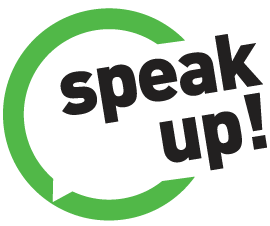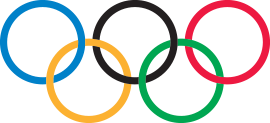Lausanne, Switzerland; March 15th, 2019 – The stakeholders of world anti-doping community gathered in Lausanne, Switzerland to discuss the progress in protection of clean sport. Our very own Myriame Djedidi, from France, represented our Athletes’ Commission and Zhuldyz Baimagambet, our IFMA Lausanne branch manager were present to give a full report of the World Anti-Doming Agency (WADA) Symposium.
The revision of the World Anti-Doping Code (The Code) and associate International Standards, capturing the athlete’s voice – these were the main themes discussed at WADA’s 15th Annual Symposium. This is the first time the athletes were present at the Annual WADA Symposium. Athlete presence is important because athletes are the key players. With the athletes present, it makes it easier to work and move together in the right direction to enhance the program against doping.
The WADA Symposium, the leading event on the anti-doping calendar, gathered about 900 practitioners for two days of high-profile presentations, interviews, panel discussions and networking sessions. Athletes, International Federations, government representatives, National and Regional Anti-Doping Organisations, Major Event Organizers, WADA accredited laboratories, along with international media representatives and other stakeholders this year were united under the theme “Towards 2021 – Navigating the Future Together”.
2021 will be the year when the latest revised and updated Code comes into effect and the world’s anti-doping stakeholders are currently finalizing the document in time for its ratification at the fifth World Conference on Doping in Sport, which will take place in November in Katowice, Poland. In addition, the Code’s various International Standards, including those related to results management, education, compliance, testing and investigations, therapeutic use exemptions, laboratories and privacy protection were discussed at length during the Symposium.
A powerful keynote address by WADA President, Sir Craig Reedie, titled “Unity Will Be Our Strength” set the tone for the meeting as he spoke of ongoing challenges of the anti-doping movement and efforts being made by WADA to protect clean sport.
“We are resolutely moving forward in our determination to protect clean sport. To continue to make impactful progress on all fronts, we need to work in partnership with everyone involved in anti-doping, whether that is athletes, National and Regional Anti-Doping Organizations, sports federations, governments, scientists, medical experts, educators and others. Division helps nobody except those trying to cheat. Unity will be our strength”, said Sir Craig Reedie addressing participants during his welcoming speech.
Further, WADA President went on to highlight enhanced intelligence and investigations activity as well as the success of WADA’s “Speak Up!” whistle blower program. He then flagged that WADA’s increased activities in these areas are being helped by the May 2018 decision of the Foundation Board to approve 8% budget increases for 2019-22.
The welcoming speeches were then followed by panel sessions. WADA specialist took delegates through WADA’s strategic priorities: harmonizing Code rules via the 2021 Code Review and simultaneous review of the International Standards; the implementation of wide-ranging governance reforms, increasing scientific and social science research; enhancing education, most notably through the development of an International Standard for Education; capacity building of Anti-Doping Organizations; and the ongoing overhaul of WADA’s Anti-Doping Administration and Management System (ADAMS).
WADA is developing the next generation of ADAMs to optimize support of global anti-doping. ADAMs is the current athlete whereabouts application which facilitates effective and efficient anti-doping activity. It facilitates secure sharing of anti-doping data between IFs and NADOs. It utilizes shared testing plans to foster efficiency and shared results to ensure effective detection and deterrence strategies. Athletes need only submit whereabouts information once. This ensures common data protection standard and consolidates testing activity from all anti-doping organizations. This ensures WADA can monitor activities of labs, NADO and IFs.
ADAMs is being overhauled to ensure that it keeps pace with rapidly changing needs of anti-doping as well as evolving data protection regulation and leverages current technology. The key to rebuilding ADAMs is to better serve athletes and ADOs. It will have enhanced security, improved performance and more intuitive design and functionality.
In the next Generation of ADAMS, the drivers for change include an immediate need for improved performance, need for a more intuitive interface, requirement for responsive web design for improved accessibility and mobility, overdue upgrade in technologies and concepts such as improved connectivity with other systems, modern security and reliability of service. Adding new features to ADAMS was also discussed to help athletes support clean sport such as: access to testing records, report doping, access to educational material and TUE application.
Athletes themselves were well represented during the Symposium. Led by WADA Athlete Committee members, the round table discussions were centered around the Anti-Doping Charter of Athletes’ Rights that is being developed by WADA’s Athlete Committee with the aim of including key principles within the 2021 Code and reinforcement of athletes’ role in clean sport initiatives.



